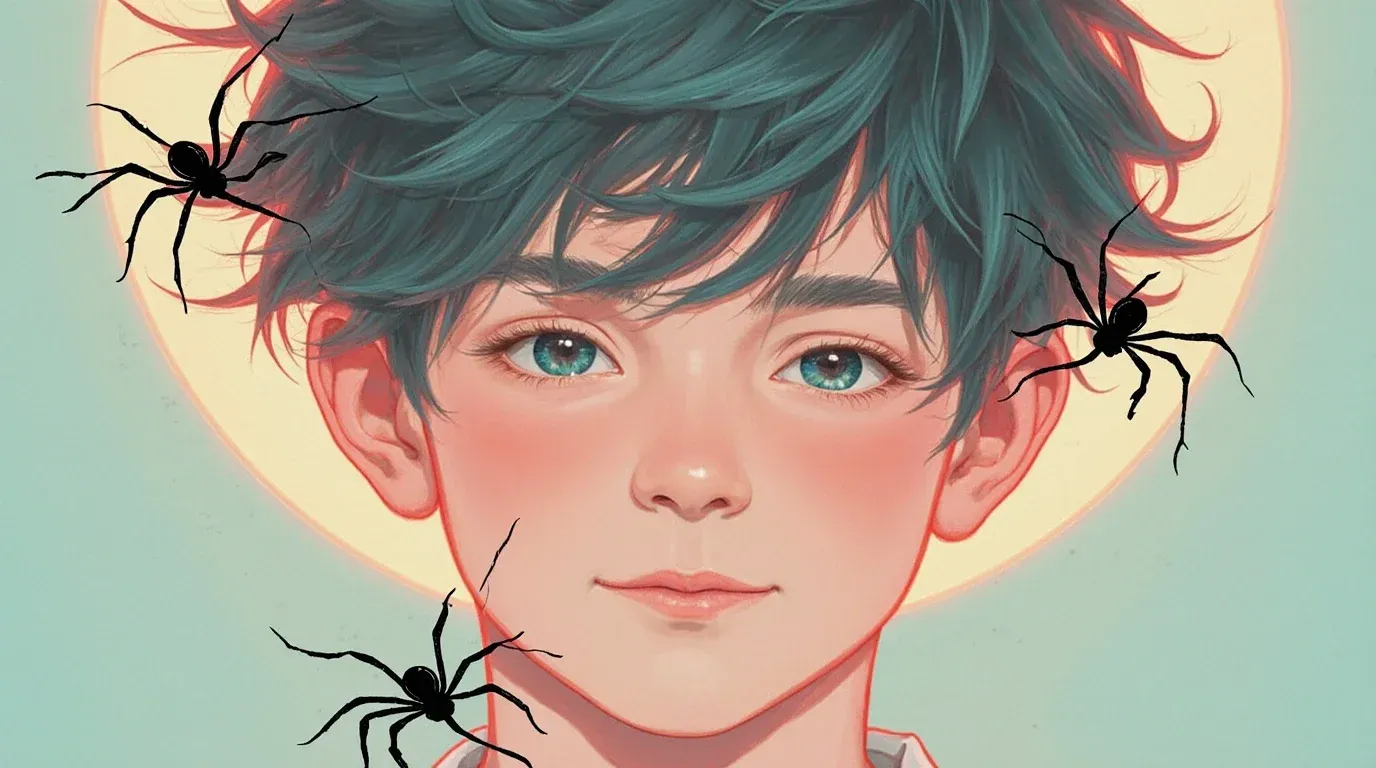A tickle at the crown, a flicker behind the ear — and the mind leaps to a picture: spiders in hair. Of course, no spider is really scuttling across the scalp, but the sensation can be so convincing that the imagination runs wild. For many of us living with MS, these moments are familiar; they belong to that odd catalogue of sensory symptoms that baffle and amuse in equal measure.
The Sensation of Spiders in Hair
Neurologists call it paraesthesia — those tingles, itches, or crawls with no obvious cause. It is the nervous system firing messages as though they were real, creating a tapestry of phantom experiences. For the person feeling it, however, the science doesn’t always help. What you notice is the uncanny feeling of pins and needles racing through your scalp, sometimes so specific it feels like a spider threading its way across a single strand.
One day it’s a faint brush, the next it’s a prickle sharp enough to make you check in the mirror. But nothing is there. It is both comic and disconcerting, like an uninvited guest who insists on making themselves known.
When Spiders Become Metaphor
The image of spiders in hair sticks because it gives form to the invisible. For those living with MS, it is a way of telling the story of what nerves do when they misfire. Invisible disturbances become visible when we give them names and faces — even if those faces are eight-eyed and hairy.
I once joked that if the spiders were going to stay, the least they could do was plait my fringe or tidy the parting. Humour takes the sting out of the uncanny. A tingle becomes a tale; a symptom becomes a character. In that way, the irritation earns its place as part of life’s curious narrative.
The Safety Net of Fragile Threads
The irony is that spider webs are delicate yet strong. Perhaps that’s why I find myself grasping spider webs as a safety net. These creeping sensations remind me that the nervous system is fragile, yes, but it also endures. They urge patience when the body whispers stories I didn’t ask to hear.
You can explore other strange scalp phenomena in The Curious Case of the Itching Scalp, and you may recognise kindred territory in Sir Prickalot and Pins and Needles. Both show how creativity can lend shape to odd realities.
The Balance of Serious and Jocular
To call these sensory symptoms trivial would be wrong; they can disrupt concentration, sleep, and peace of mind. Yet to treat them with total solemnity strips away their odd charm. A small smile at the idea of spiders making expense claims for hairpins may not cure the symptom, but it makes it easier to bear.
For those not touched by MS, it may be hard to imagine. But you’ve likely felt fleeting paraesthesia after sitting awkwardly, when your foot “falls asleep.” Multiply that by persistence, place it on your scalp, and you are close to the riddle of spiders in hair.
Frequently Asked Questions
Do spiders have hair?
Yes. Spiders are covered in fine bristles, technically called setae, which help them sense vibrations and navigate their world.
Do spiders lay eggs in hair?
No. That’s the stuff of urban legend and late-night horror films. Spiders prefer hidden, quiet places — not human heads.
Do spiders live in your hair?
No. If you’re curious, Horizon Pest Control explains why spiders don’t set up camp in hair.
Can spiders live in human hair?
No. Human hair is far too exposed and constantly moving. The idea belongs in folklore, not biology.
Conclusion
In the end, “spiders in hair” is a story we tell to make sense of the inscrutable. It is paraesthesia with a personality, pins and needles turned into a bedtime tale. For those living with MS, it is one more reminder that the nervous system writes in riddles — but riddles can be met with resilience and, sometimes, a wink. What feels eerie becomes oddly comforting, a fragile net spun from sensation, imagination, and the quiet art of holding on.




